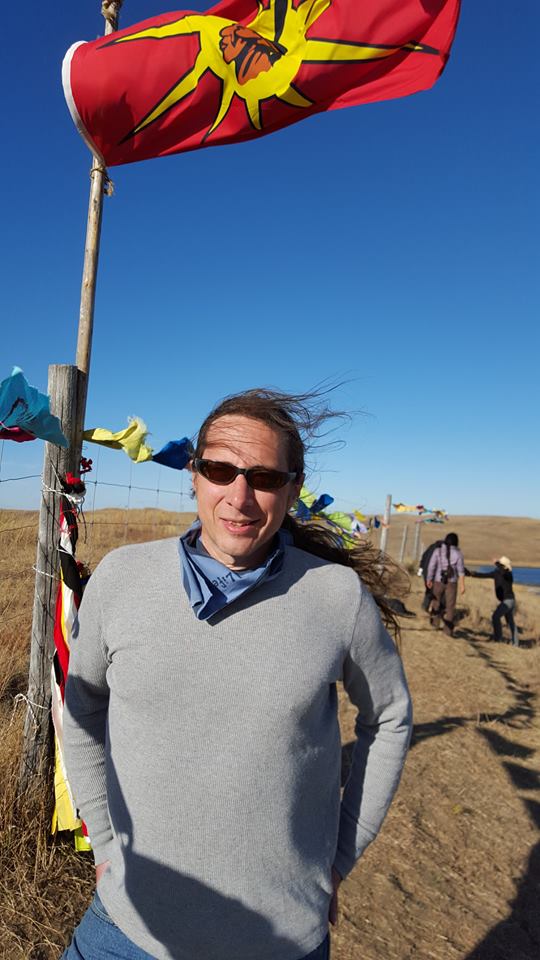ODU Professor Finds Research Link While Participating in Dakota Pipeline Protest
January 04, 2017
 Drew Lopenzina
Drew Lopenzina
Drew Lopenzina, an associate professor of English at Old Dominion University, is linking his research on Native Americans with new findings from a trip to North Dakota in November where he participated in the controversial Dakota Access Pipeline protest. He says the trip intersects in compelling ways with research for his upcoming book, "Through an Indian's Looking Glass," a cultural biography of the 19th century Pequot minister and activist William Apess.
Lopenzina is a scholar of Native American and Early American literature. He is also the author of "Red Ink: Native Americans Picking up the Pen in the Colonial Period." His scholarship has appeared in the journals American Literature, American Quarterly and American Indian Quarterly among others.
"Since Apess' time, not much has changed. We are fighting the same battles that we were fighting 180 years ago," Lopenzina said. "It shows that the past is always present."
Lopenzina stayed four days at the Oceti Sakowin Camp where thousands have spent months protesting against plans to pass the Dakota Access Pipeline through treaty lands adjacent to the Standing Rock Indian Reservation.
"There were people in tents and teepees and others on horses riding around. It was like an anachronism out of a story book," Lopenzina said.
While there, Lopenzina took part in a march from the capital building in Bismarck through downtown to the Federal building where a tense standoff took place. Lopenzina says he didn't know if he was going to be peppered sprayed or the next protester to be locked up.
"The police were lined up about 20 feet away from us. We met them at that line and held that space for about two and half hours. It felt like a warzone," Lopenzina said. "There's this peaceful resistance taking place and then there's this militarized presence that really shows a coercive oppressive government force that I think is being irresponsibly applied."
The initial plan was to have the $3.7 billion pipeline carry millions of gallons of oil underground north of Bismarck, on its way to Illinois and ultimately Texas. After debates and discussions, residents in Bismarck objected to the plan and the company, Energy Transfer Partners, decided to re-route the project closer to Standing Rock.
Construction on the pipeline prompted months-long protests by Native Americans, who call themselves "water protectors," and environmentalists who say the project will harm water resources and sacred lands. The protest is receiving international attention. Hundreds of tribes around the United States have sent people for support. Lopenzina said the coming together of so many tribes is an unprecedented moment in Native American history.
For now, the federal government halted construction of the pipeline but that could easily change with the incoming Trump administration which has voiced strong support for the oil industry. While some argue the pipeline will spur economic growth, Lopenzina says oil reliance is putting the U.S. at a disadvantage.
"Other countries in Europe are already going to other energy sources. Reliance on fossil fuels is economically and ecologically irresponsible," he said. "We should be investing and moving forward in other directions."

